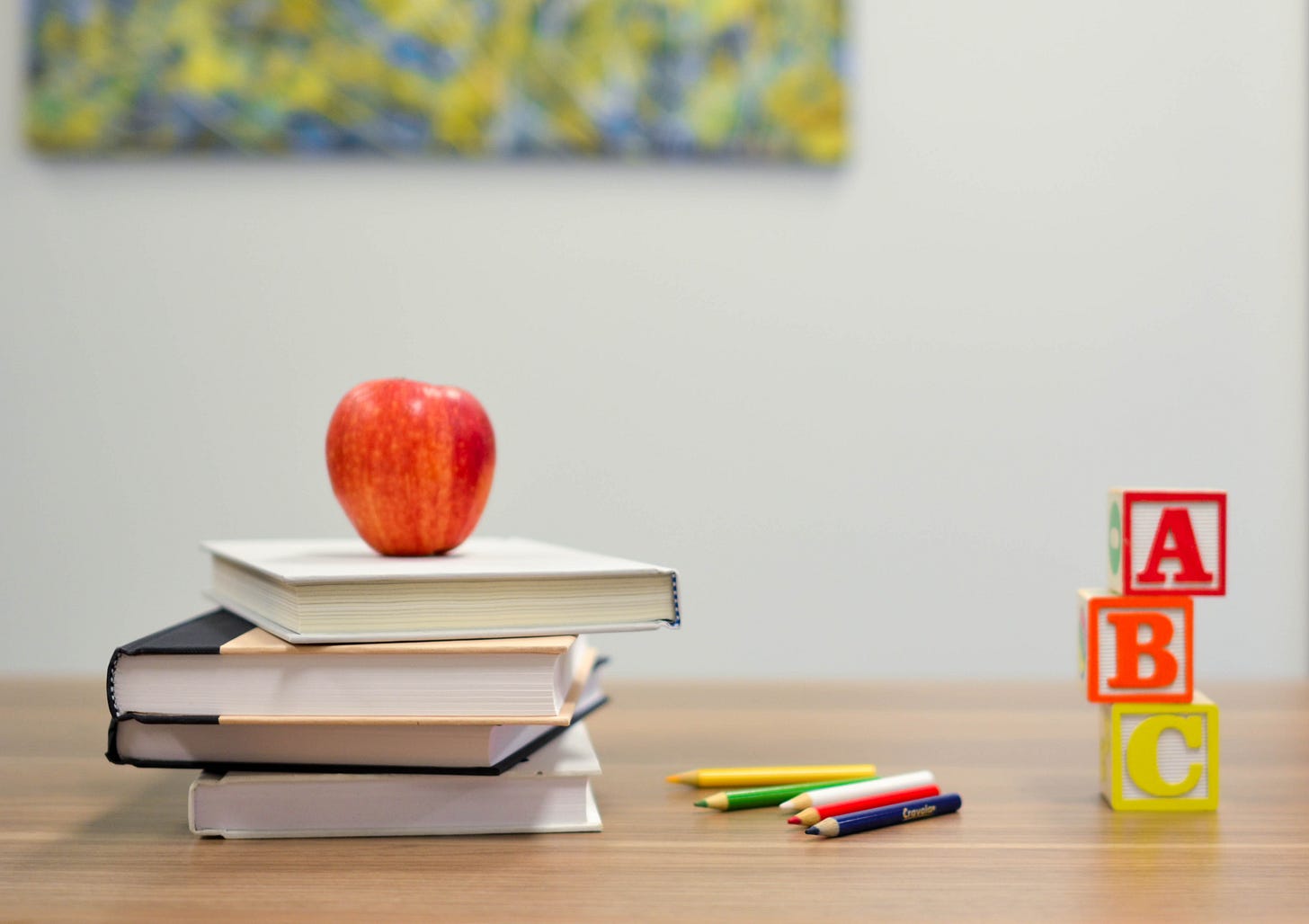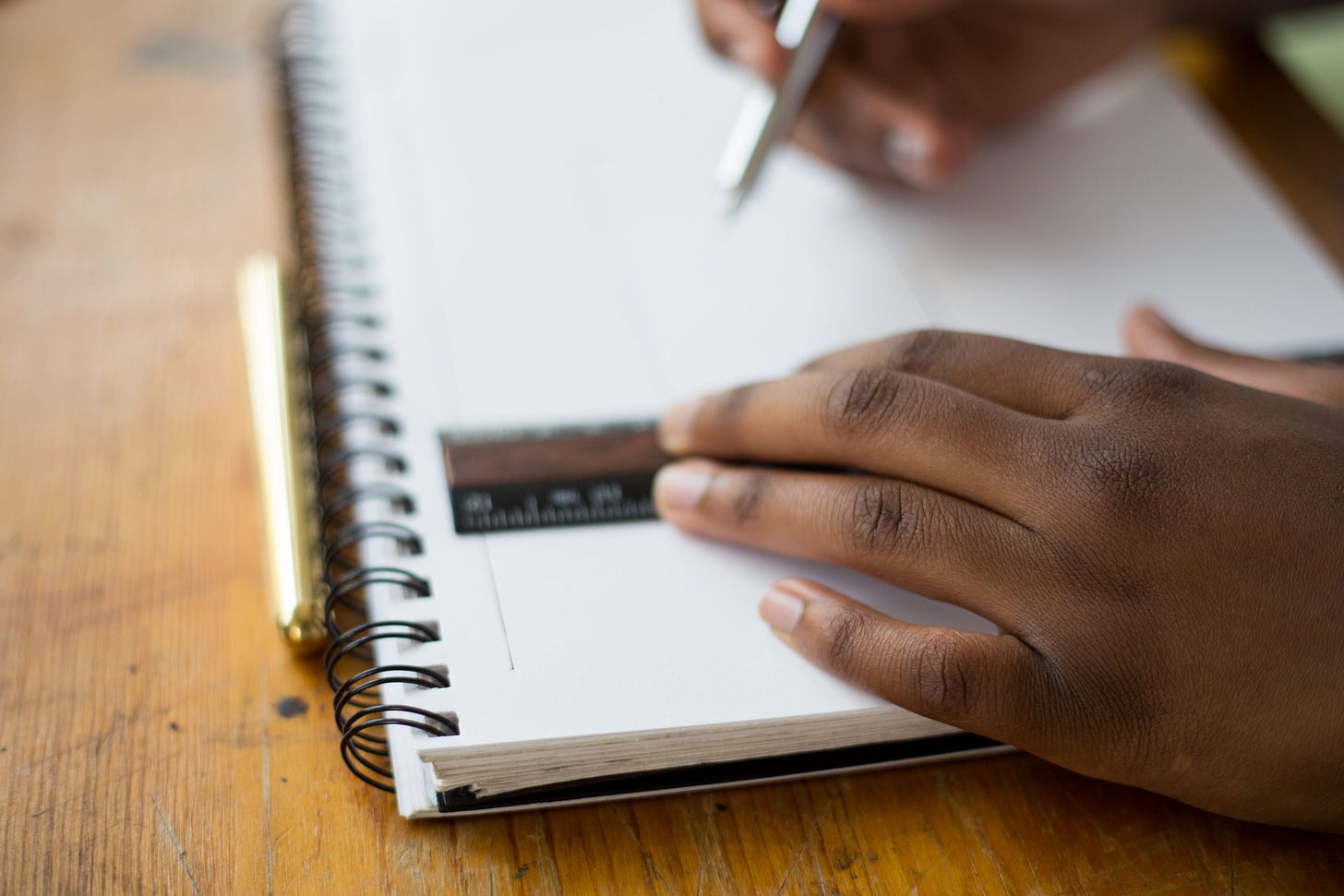Owning Our Education
Over the holiday break, Julia and I have been catching up to the last two episodes of Small Axe on Amazon Prime. In short, it’s an anthology film series by British director Steve McQueen. Small Axe tells five distinct stories of Caribbean migrants existing in Britain between the 1960s and 1980s. What made Small Axe so brilliant for me was its relatability as an immigrant in the States and attempting to thrive in a system that would rather see the opposite for you.
“Uh, and I know it's just a fantasy. I cordially invite you to ask why can't it be.
Now we can do nothing about the past. But we can do something about the future that we have.” - Lupe Fiasco
All of the films in the series were memorable and poignant in their own ways, but the film Education shines the brightest and hits home the hardest for my wife and me. Education is the story of a working class Jamaican family in London with a father and mother that work tirelessly to ensure their children are outfitted with “proper education” which they never receive. As the story unfolds, the protagonists discover the British education system purposely undermines Black migrant children and routinely send them to “educationally subnormal” institutions instead of providing them their proper needs.
The film didn’t awaken some grand enlightenment from Julia and I, but gave us full confirmation that our children’s education needs to be owned by us. We cannot expect a system not designed for us to thrive and in turn provide our child an education that prepares them for the world. Zora, our oldest child has always excelled in academia. However, we’ve provided our own curriculum outside of the classroom. These lessons range from truthful stories about great West Africa,Afro-Caribbean and Black Americans leaders who have transformed the world to applicable life lessons about our current world.
Now that Garvey, our youngest is “school age”, we are flirting with the idea of homeschooling him for the earlier years of his elementary school career. Similar to Kinsley (the son in Education), our youngest is high energy, sensitive and smart, yet is easily bored which can be viewed in a controlled environment as “disruptive”. The last thing we would want is the education system to label him early with the scarlet letter of being “disruptive”, because his learning style is different.
In “Reframing the Racialization of Disabilities in Policy”, professors Catherine Kramarczuk Voulgarides and Adai Tefera assert that personal biases and how race manifests in society and policy mandates cannot be easily ridden through symbolic changes to educational practices. Once students (particularly Black and Hispanic) are placed in special education, the results eventually lead to low academic performance, involvement in the juvenile justice system, and high drop-out rates. Once labeled as “special education”, students miss out on a host of education opportunities, because it’s a form of tracking.
The thought of potentially homeschooling my children is frightening to say the least. Yet, if necessary, I’m willing to be a little scared in order for my kids to get the best chance at success. Often children that are minorities in English-speaking countries do not have the opportunity to be taught by educators that look like them or come from similar backgrounds. This creates a divide in behaviors our children display that are perfectly normal to be treated as disruptions to the classroom. I’m willing to forgo the traditional classroom setting to ensure my kids are taught in environments that are conducive to their well-being. Deciding to work outside of the system is the one path to avoid not having my children swallowed up by it.



